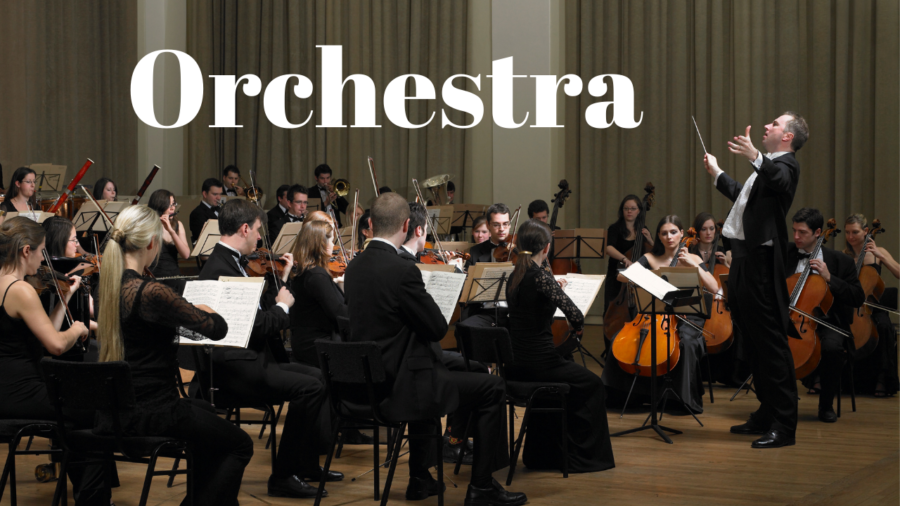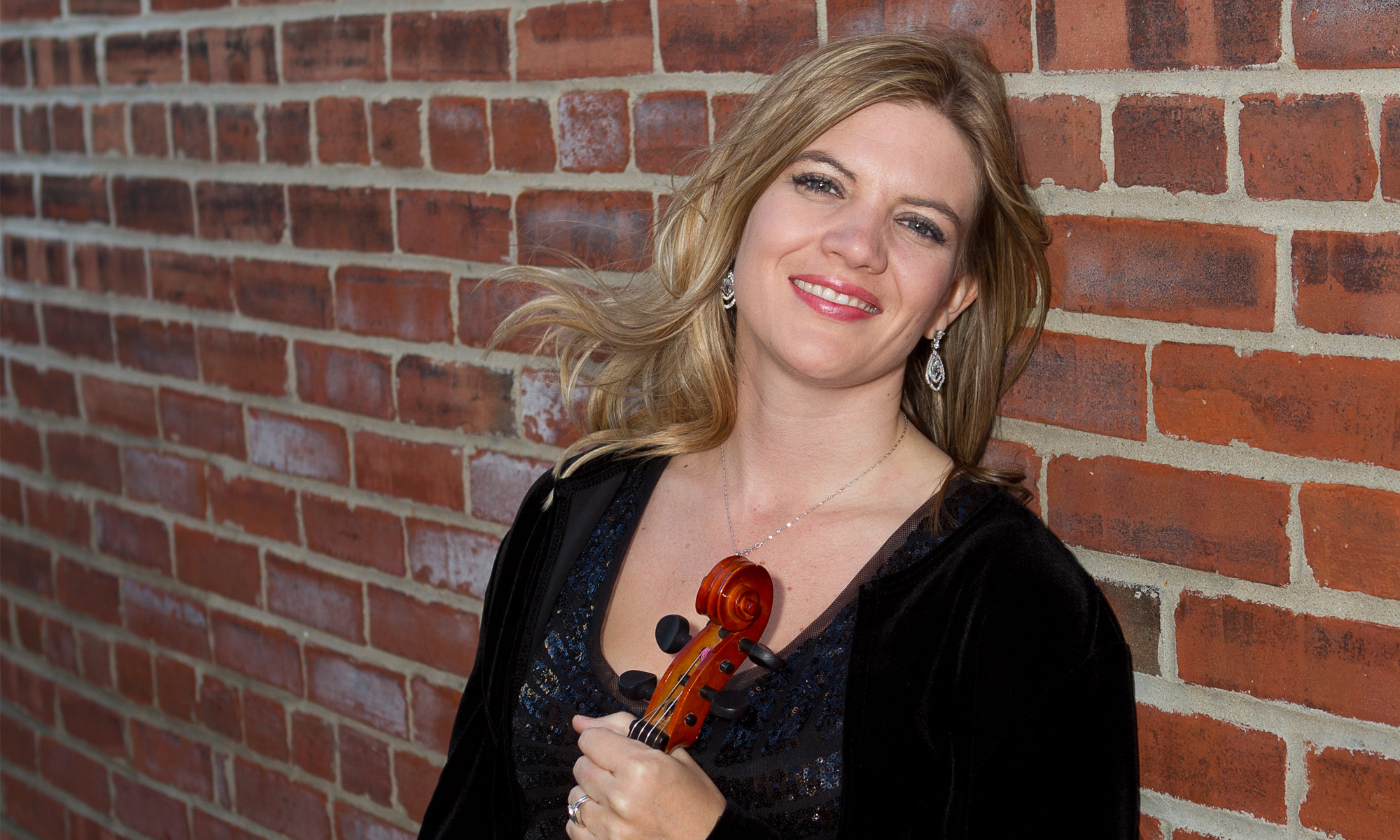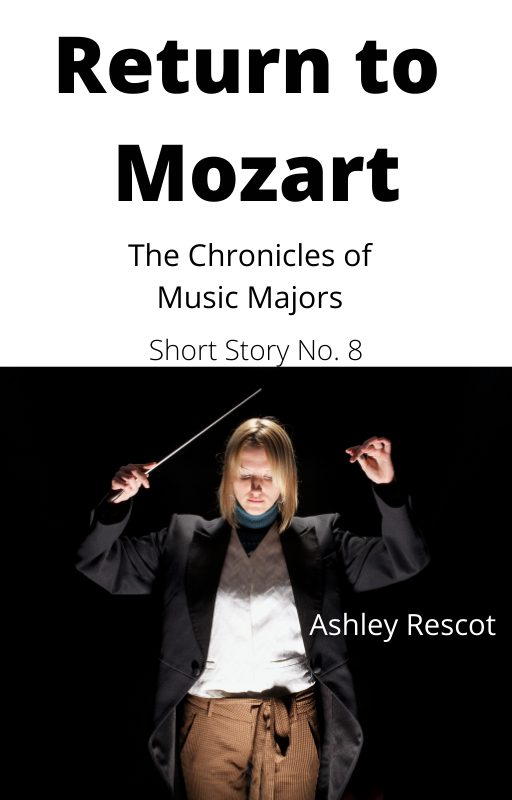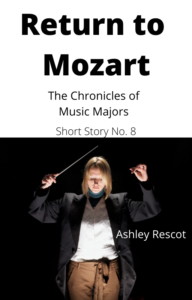
Amadeus Gruber lowered his heavy frame into his desk chair. Johann Conservatory wanted him to transfer all of his classes from in-person to online by the end of next week. Would he ever figure out how to navigate the technology? How could they expect this of a sixty-eight-year-old professor? He’d only recently learned how to send photos to his nieces and nephews back in Austria. He needed someone with a better grasp on technology. Perhaps Lisandra, his graduate assistant, could help? Why in the world had the department sent him a female graduate student? Over the course of his career, he’d met very few women interested in composition. Performance, of course, always seemed anxious to show off their fancy dresses at recitals and concerts. But the behind-the-scenes, solitary work of a composer? Not a chance.
He opened his computer, pulled up his email, and began to type.
Dear Lisandra,
Would you be available to help me with my online classes? I am confused by all the new technological requirements.
Best,
Amadeus Gruber
Yes, maybe she’d know more about this stuff, which would allow him to focus on more important things, such as finishing his symphony. After rummaging in the top desk drawer, he pulled out several pieces of staff paper covered in music notes, along with a pencil. He coughed. Again. This blasted cold wouldn’t let up. Where had he left off last time? Ah yes, time to add parts for the brass and percussion. Perhaps, with luck, he could begin the developmental section in a couple of weeks. If only this tightness in his chest would ease up.
###
Lisandra’s phone rang. Dad. This could only mean one thing. “Hello, Dad, how are you?”
“Honey, you must come home. I’m worried. The airlines are still allowing repatriation passengers on flights, but I’m afraid that soon everyone will shut their borders completely. Please get on a flight before it’s too late.”
She closed her eyes. “Dad, I can’t. Not yet. I still have another two years of school to complete before I finish my graduate degree. And I’m finally getting to study with Amadeus Gruber, a descendent of Mozart himself. You don’t expect me to throw it all away, do you?”
“No, dear. But everyone’s worried about this virus. They’ve already canceled all of our symphony concerts for the foreseeable future.”
She gasped. “Did you lose your job?”
Silence. “Not yet. But if concert halls don’t reopen soon, it might come to that.”
Her heart sank. What a devastating blow to her father. He’d worked his entire career to earn his prestigious position as conductor of the Estonian Philharmonic Orchestra.
“Trust me, Dad, I don’t like this situation any more than you do. But school is still continuing online, and I’ve got to pay rent here in New York City. I can’t give all this up. Not yet.”
“Just think about it.” Dad ended the call.
A half-hour later, Lisandra pulled on her fur-trimmed boots and bundled up in a hat, scarf, coat, and gloves. Should she reconsider flying home? What if things grew worse and she couldn’t return to Estonia? Outside, a chill stole through her body. She pulled her coat more tightly around herself The eerie empty streets reminded her of old photographs she’d seen from the war. Except this wasn’t wartime. But everything was closed, even her favorite café. Would any of these businesses survive? What about symphonies? Surely Dad wouldn’t lose his job, would he?
Thank goodness Professor Gruber didn’t live far from the conservatory. Once she arrived, she surveyed the elaborate apartment building in front of her. What a contrast to the iron staircases outside her dingy studio.
Of course, she’d never visited her professor’s apartment before. The conservatory strongly discouraged such intimate interaction. Would she be safe? She’d read about his history as quite the womanizer back in his day. But since the school had closed its doors, and none of the cafés were open, what choice did she have? She shivered. Hopefully the old bachelor remained respectful.
After knocking several times, the door creaked open to reveal Professor Gruber in the entryway.
“Come on in.” He waved her in. “Can I take your coat?”
“I’ll keep it on for now. I’m frozen after the walk here.”
The sparsely decorated living room begged for a feminine touch, and a glance toward the kitchen showed a mountain of dishes piled in the sink. Gross.
Once in his study, he gestured for Lisandra to sit at his computer. “Here you go. I need all the files in the folder labeled ‘teaching’ uploaded to the new school platform. I forwarded the email with the instructions.” He picked up a stack of papers and a pencil. “I’ll be in the living room if you have any questions. If not, I’d prefer not to be disturbed.”
She nodded.
After a few minutes, she’d located several of the teaching files and uploaded them to his online courses. He’d have benefited from a personal secretary years ago to help with this mess of files.
A couple of hours later, she reread the email from the department to make sure she’d completed everything. In addition to the files, he’d need to record several lectures and upload them. No doubt he’d need help with that, too. She grabbed her purse and entered the living room. “Professor Gruber, do you need anything else today?”
He shuffled several papers around without looking up. “No, Lisandra. That’ll be all for today.”
She cleared her throat. “The email mentioned that you’ll need to record your lectures for the classes. Would you like some assistance?”
His head popped up. “Record lectures? Ah, I remember. Yes, I’ll definitely need help.” He coughed into his hand. “I have no idea how to record videos. Do you?”
“Yes.”
“Good. I’ll see you soon.”
###
Two days later, Amadeus pulled on his best blazer, a button-down shirt, tie, and a pair of khaki pants. Apparently, he needed to look professional for the video recording. No use for his students to see him in the sweats and loafers he’d worn for the past twenty-four hours. If only these body aches would ease up so he could accomplish something productive.
He glanced at his watch: 8:15. Time to check his glucose levels. Hmm, 160, a little high. All this monitoring of his diabetes would kill him.
A faint knock at the door greeted him.
He attempted a smile and opened the door. “Welcome, Lisandra.” His eyes narrowed at the blue medical mask that covered her face. “What’s that for?”
“The governor recommended we all wear them. They’re supposed to slow the spread of the virus.”
He crossed his arms. “Seems a little odd that I can’t see your face, but all right. Let’s get started. I’ve prepared my lecture.”
“Great.” She set up a tripod and mounted her smartphone on top.
“Nice contraption you have there.”
She smiled. “Thanks.”
Forty-five minutes later, he finished his speech on the rules of harmonic progressions. Palms sweaty, he wiped them on his pants. Must’ve been the nerves of speaking in front of the camera. “How did I do?”
“Great, Professor. Just like in class.” Her eyes shone with enthusiasm. Quite the beauty.
He loosened his tie. “Felt a little odd talking to a camera instead of a room full of people.”
“I’m sure you’ll get used to it.” She turned and picked up a stack of papers from his table. “May I ask what these are for?”
His insides churned. “Be careful. That’s the manuscript of my symphony. I’ve been writing it for several years now, but I haven’t had enough time to devote to it. Until recently, of course, now that we can’t go anywhere.” He grunted.
Her brown eyes scanned the pages as if to take them all in at once. “You know, I could help you input all this into a music software system. That way you could change parts as needed and not have to do it all by hand.”
“Hmmm.” He stroked his chin. “I’ve always wanted to try one of those but never had the nerve to take the plunge. I’m so technologically behind that I’m not sure I could figure it out.”
She set the stack back on the table. “No worries. I’ll help you. It would be my pleasure. I don’t have anything going on right now, anyway.”
“Excellent. See you tomorrow.” With an assistant, maybe he could make faster progress on the composition, if his body cooperated.

###
That evening, Lisandra hurried to the keyboard in her apartment. Would she be able to play the melody to Professor Gruber’s symphony? She’d only scanned it for a few minutes, but based on the part she saw, she couldn’t deny this man was a musical genius, as evidenced by his eccentricity. The melody had played in her head the whole walk home. If he’d let her help him, maybe now she’d have a chance to prove herself. The need to compose burned in her like a raging fire.
The next morning, she returned to his apartment, her small keyboard in tow. “I’m ready.”
“Good.” He coughed several times. “Let’s get started.”
Was he sick? What if he’d contracted the virus She pulled her mask more securely over her face.
With a swift motion, he handed her five stacks of paper. “These are the string parts for the first movement. Once you’ve finished them, we can move on to the winds. I’m still working on the brass and percussion but will hopefully complete those soon so I can move onto the slow second movement. I think something much more melancholy than the first.”
“Makes sense to me.” Heart drumming fast, she examined every detail of his composition. The mastery with which he wove the melody from instrument to instrument while adding harmonic layers above and beneath sent a tingling sensation down to the tips of her toes. “This is brilliant,” she exclaimed as she ran her fingers over the keyboard. “You’re brilliant.”
His eyes softened a few degrees as he scrutinized her face. “Thanks. Now tell me, do you have any ideas for the melodic motif of the second movement? Nothing has struck me yet, so I’ve moved on to the third instead.” He coughed into his hand.
“I, um…” Why couldn’t she think of anything off the top of her head? “I’ll brainstorm tonight and see if I come up with something by tomorrow.”
“Perfect.” He coughed again. “I’ll see you then.”
That evening, Lisandra pondered endless musical possibilities for the second movement. Which one should she choose? What would he like best? After two hours, she grabbed her phone. Time for a mental break. She scrolled through several stories about additional businesses that had closed for good. Of all the years to live in New York, this was the absolute worst. With her studies in the fall and her return home to Estonia over the winter break, she’d had little chance to visit any of the sites before everything shut down. Would the world ever return to normal?
###
A week later, Amadeus tried to take a deep breath as he pulled a polo shirt over his head. He shuddered. The body aches and cough hadn’t diminished. They’d increased, and now a nasty fever plagued him as well. No use denying the symptoms anymore. Better warn Lisandra. He’d grown accustomed to her presence over the past few weeks—the one ray of light in his isolated, pain-filled days. She was young but smart. The complexity of her suggestions for the second movement blew him away. Not something he’d ever expected of a woman. He’d had many girlfriends in his early years, but no one who truly understood his work. But this girl was different. Her talent and determination signified the ability to become one of the greats.
Yes, he must warn Lisandra. Hopefully it wasn’t too late.
###
Lisandra set her phone down on the couch. Now Professor Gruber had the virus. Everyone she knew had fallen sick with this awful virus. It had already killed so many people in New York, and many more were dying by the day. While scrolling her phone again, a disturbing headline caught her eye. “Hundreds of Bodies Buried in Unmarked Graves in New York.” Her eyes bulged. This couldn’t be true. She continued to read the article. “As numbers in the city skyrocket, overwhelmed authorities, unable to keep up with the body count, have transported many of the unidentified deceased to Hart Island to be buried in mass, unmarked graves.”
A sob caught in Lisandra’s throat. How inhumane, like something from a page in history. Hadn’t she just read a biography about Mozart which referenced his unmarked grave? She closed her eyes at the thought of his dug-up grave, used again and again. This concept of unmarked graves, and mass graves, was a thing of history, wasn’t it? How could these exist now, in the twenty-first century, right here in New York City? Like living in a gothic novel.
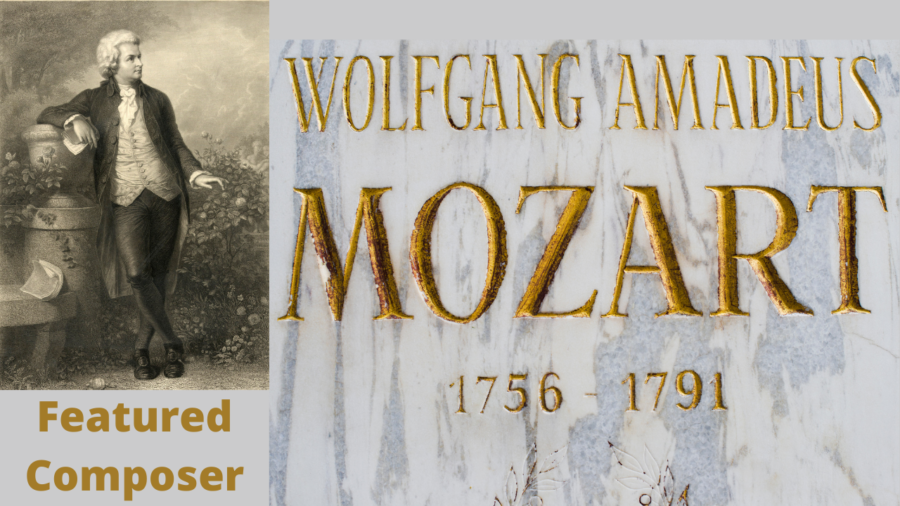
She pulled out the biography and skimmed the relevant chapter. “Many poor people were buried in pits, or grubers in German.”
Grubers? Like the last name of her professor? His last name meant “pit?” She shuddered.
The following day, no call from Professor Gruber. Or the next. Or the next. She’d called him but he hadn’t answered. Should she risk a visit? His family lived in Austria, while hers was back in Estonia. What if no one had checked on him?
Yes, she had to go. It was the only humane thing to do.
Upon arrival, she rapped on the door several times. Silence. Since he’d given her a key, she turned the latch and stepped inside. The putrid scent of days-old food and dishes assaulted her senses. Please let him be alive. What would she do if he wasn’t? Her stomach lurched at the thought. You can do this, Lisandra. Be brave. She padded to his bedroom door, took a deep breath, and knocked.
“Who’s there?” a weak voice croaked.
Thank goodness he wasn’t dead.
“It’s me, Lisandra. I’ve come to check on you.”
He coughed several times, low and guttural. “Go away. I’m very sick and don’t want to risk your exposure.”
She hesitated. How could she leave him in this condition alone and to become the next composer buried in an unmarked grave? No, she had to help.
With a deliberate push, she shoved open the door and stepped inside. The professor lay on the bed, his shirt drenched with sweat, face flushed. She brushed her hand against his forehead. Too warm. “How long have you been like this?”
He shrugged. “I don’t know. Several days.”
“When did you last eat something?”
“Yesterday morning or the day before. I can’t remember.” He clutched his chest.
She scraped her hand through her hair. What if she’d come a day later? Who knew what might have happened? “We’ve got to take you to the hospital.”
He shook his head. “I can’t. According to the news on TV, they don’t have enough beds left. Might as well save them for those who have a chance.”
Lisandra grabbed the empty cup from his nightstand, filled it with water, and brought it back. “Here, drink this.”
With a weak smile, he raised the glass to his lips. “Thank you.”
“What else do you need? I can make eggs, if you’d like.”
“No.”
“You have to eat or you’ll lose all strength.”
“No.”
She wrung her hands. “What do you want to do?”
“Bring me my composition. I want to work on the symphony.”
“Not unless you eat first.”
His eyes narrowed as he examined her. “You’re a stubborn girl, Lisandra. All right, I’ll take some eggs if you promise to help me with the symphony afterward.”
She smiled. “I promise.”
###
Amadeus kept his eyes on Lisandra as they ate their scrambled eggs, canned fruit, and stale cookies. Resourceful. She’d made the most of what remained in the pantry. Perhaps now he’d have the strength to compose. He rose to move to his study, but a pain in his side forced him back in bed.
“Stop.” She pressed his hand. “I’ll bring the keyboard in here.”
When she returned, she sat on the bench and began to play.
“What’s that?” he asked after several moments.
“A tune I made up.”
“That’s it. The theme for the second movement. It’s perfect.”
Her eyes lit up. “You think so?”
He nodded. “I’d orchestrate it by giving the theme first to the winds, then to the strings. Maybe even add the harp.”
“The harp?”
“It’s your primary instrument, is it not?”
She nodded.
“Yes, let’s do that. I wish I could hear you play.”

“I could bring my harp here tomorrow. I have a portable one.”
“No, you shouldn’t come back here. I’m too sick and contagious.”
She wiped his forehead. “I’ve already been exposed.”
He closed his eyes. He struggled to breathe. Why was this virus so unrelenting? If there was a God, thank goodness he’d sent this angel to stay by his side.
###
“You cannot stay at that man’s house.” Dad’s voice crackled over the phone.
“Why not?” Lisandra packed more of her clothes into a suitcase.
“For several reasons. First and most important, because he has the virus, and I don’t want you to contract it. Second, because you’re a young girl and he’s your professor. I don’t want him to take advantage of you.”
Lisandra clipped her suitcase shut. “Dad, he’s so weak he couldn’t take advantage of me, even if he wanted to. And if I get sick, as well, I’ve already taken that risk. I’m young, so I’d have a good chance of fighting it off. But he’s old and has no one here to care for him. Haven’t you taught me my whole life to help others?”
Silence.
“Please, Dad, I believe I’m called to do this. I need you to understand.”
Dad grunted. “I’ll try. Keep us posted. I love you.”
“I love you, too.”
###
The following morning, Lisandra maneuvered her suitcase and harp to the elevator of Professor Gruber’s apartment. What a job.
Once inside, she headed straight to the bedroom. She gasped at the sight of Professor Gruber, lying ashen faced on the pillow.
“Lisandra, is that you?” he whispered.
“Yes.” She rushed next to his bed. “How are you?”
“I can’t get enough air.”
She pulled out her phone. “We’re going to the hospital.”
He shook his head. “It’s too late. I won’t make it.”
Tears stung her eyes. “You have to. We haven’t finished the symphony. We still need to write the fourth movement.” She reached for the manuscript that lay next to his bed.
He gave her a weak smile. “From the moment I first heard you play, I knew you possessed what it takes to be a great composer. Although I can’t finish it, I know you will.”
She swallowed. Of course she wanted to compose, but at this cost? To watch her mentor die before her very eyes? Tears streamed down her cheeks.
With a soft caress, he brushed them from her face. “Don’t cry for me. My time is over, and now it’s yours.” He drew a rattled breath. “Continue to work hard, and trust your inner muse. You have something inside that guides you and inspires your creativity. Never let that flame burn out.”
Warmth flooded her heart at his words. He, a descendent of Wolfgang Amadeus Mozart himself, believed she possessed the talent to be a great composer, too.
Another of his coughing fits interrupted her thoughts. What could she do? The cup of water on his nightstand might help. She reached for it and held it to his lips. After a few sips, the cough subsided.
“What do you have in the case?” He pointed toward her instrument.
“My harp.” She sniffed.
“Play for me, please.”
She rose, pulled it out, and returned to the chair beside his bed. “What song would you like?”
“Anything.”
When her grandpa was dying, her mother had played Psalm twenty-three for him. She’d said it possessed the power to comfort the sick.
“Yea, though I walk through the valley of the shadow of death, I will fear no evil: for thou art with me.”
His breathing slowed. “A psalm of David the harpist, the great composer of old.” He closed his eyes. “I remember.”
###
Back in Estonia two years later, Lisandra slid into the seat of the concert hall next to her mother. Her big day had finally arrived. The title of the program read “Return to Mozart” and included Mozart’s Requiem in honor of those who’d died during the pandemic. She glanced at the inside of the program. Her vision blurred at the picture of Amadeus Gruber featured next to her own.
A moment later, her father took the stage and bowed to the audience.
“Ladies and Gentlemen, tonight we celebrate the reunion of the Estonian Philharmonic Orchestra after more than a year’s hiatus.” The audience erupted into applause. “To commemorate this special occasion, we will enjoy a special treat. The late Amadeus Gruber began this symphony long before the pandemic wracked our globe, when musicians still performed for packed concerts halls without fear of illness.
“Months before Gruber’s death, my daughter, Lisandra, moved to New York to study with him at Johann Conservatory where they collaborated on the composition. Sadly, Gruber died before the piece was complete, leaving her to finish the task in his stead. Lisandra, would you please stand?”
Tears streamed down her cheeks as she rose from her seat. After all the years of hard work, sacrifice, and pain, she’d finally achieved her dream of being featured alongside the greats.
Dad extended his hand toward her. “Without further ado, I present to you the premiere of the Resilience Symphony.”
